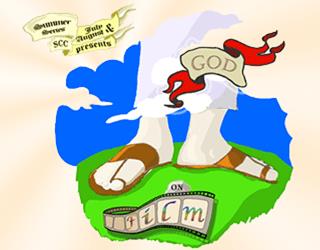
God on Film
Max – MAXimum Loyalty
Sycamore Creek Church
August 30/31, 2015
Tom Arthur
Peace friends!
Omar Eduardo Rivera was a blind computer technician working on the 71st floor of the World Trade Center when the planes hit on September 11, 2001. When the elevators went out, he was dependent on his service dog, Dorado, to get him safely down seventy flights of stairs. As the noise and heat increased, it became apparent to Omar that it was not going to be an easy or quick task to navigate the packed stairs. He was uncertain he would make it out alive. So he unclipped Dorado, nudged him, and told him to go. Dorado was swept away by the flow of people, but only a few minutes later, Omar felt Dorado’s wet nose at his hand and he refused to leave his side. An hour later, Dorado led Omar safely out of the tower only moments before it collapsed.
Today we wrap up a series called God on Film. Each week we’ve been looking at a different summer blockbuster and exploring the themes that each movie evokes and what the Bible has to say about that particular theme. Today we’re looking at the movie Max. Max is about a war dog who suffers PTSD after his handler is killed in an ambush and how he becomes loyal to his handler’s younger brother. Today I want to talk about MAXimum loyalty. Now I’ve got to warn you. I’ve never cried so much reading sappy loyal dog stories. I cry every time I watch this trailer. It’s the “feel good movie of the summer.” So be prepared to shed some tears. And if you’re like me and you need to do some “man crying” then we’ll let you pretend to be itching your eyes and we won’t rat you out. We’re loyal like that.
I want to explore two kinds of loyalty today and what the Bible says about them: MAXimum loyalty to friends and MAXimum loyalty to God. Let’s dive in.
1. MAXimum Loyalty to Friends
Jesus taught about friendship. Friendship and happiness or joy are very closely tied together in Jesus’ teaching. He says:
I’ve told you these things for a purpose: that my joy might be your joy, and your joy wholly mature. This is my command: Love one another the way I loved you. This is the very best way to love. Put your life on the line for your friends.
~John 15:11-13 (The Message)
Joy and friendship are intertwined. I was recently listening to a Freakonomics podcast interview with Dan Gilbert, a Harvard Professor of Psychology. He wrote a book about happiness and gave this nutshell suggestion of how to be happy: “Care about and interact with other human beings.”
So if you want to be happy, then invest in friendships. Let’s look at what MAXimum loyal friends look like.
Trustworthy
MAXimum loyal friends are trustworthy. So much so that you can bet your life on them because Jesus says, “Put your life on the line for your friends” like the soundtrack song to the movie, I Bet My Life. Have you ever had a friend or a dog put their life on the line for you? Gage was a Christchurch, New Zealand Police Dog who worked with Senior Constable Bruce Lamb. Lamb and Gage were called to a routine drug search when things went terribly wrong. Lamb was shot in the face with a shot gun and lay on the floor. When Lamb looked up from the ground he saw the barrel of the gun in his face ready to finish him off. At the last second Gage jumped in front of him and took the blast that would have killed Lamb. This gave other officers the chance to disarm the man while Lamb crawled out of the house. Gage died that day but Lamb lived. Gage was awarded a gold medal posthumously. Like Gage, a loyal friend puts his or her life on the line.
A loyal friend is trustworthy because that friend isn’t seeking their own agenda from you. They’re seeking God’s will for you. You can trust them because you know they want the best for you. They want the best for you so much that they not only tell you when you’re doing well, they tell you the hard truth when they see you falling out of God’s best plan for your life. Or as a friend of mine likes to say, “A false friend stabs you in the back but a true friend stabs you in the front.” A MAXimum loyal friend is trustworthy.
Tenacious
A MAXimum loyal friend is not only trustworthy but also tenacious. The wisdom book of the Bible, Proverbs, says:
There are “friends” who destroy each other, but a real friend sticks closer than a brother.
~Proverbs 18:24 NLT
Hachiko was a tenacious dog in Tokyo. In 1924 Professor Ueno took him as a pet. Each day after work Hachiko would meet Ueno at the train station. One year after Hachiko became Ueno’s pet, Ueno had a massive stroke and died. For the next nine years until he died himself, Hachiko continued to come to the train station at 6PM to greet his master. Riders on the train began to notice and over time Hachiko became a national hero in Japan because of his tenacious loyalty to his master, even after his death.
A MAXimum loyal friend is tenacious by being stable. They aren’t fickle. They’re there for the good and the bad. The ups and downs. In a world dominated by mobility, I might even go so far as to say that the MAXimum loyal friend is unwilling to move away, even if a higher paying job presents itself in another faraway state. MAXimum loyal friends are tenacious in the friendship. They stick closer than family.
Troupes
I know. I’m stretching it here (I spent a lot of time in a thesaurus to come up with a T word for group), but MAXimum friends come in troupes, or groups. The wisdom book of the Bible, Ecclesiastes, says:
Two people are better off than one, for they can help each other succeed. If one person falls, the other can reach out and help. But someone who falls alone is in real trouble. Likewise, two people lying close together can keep each other warm. But how can one be warm alone? A person standing alone can be attacked and defeated, but two can stand back-to-back and conquer. Three are even better, for a triple-braided cord is not easily broken.
~Ecclesiastes 4:9-12 NLT
Two is good. But three is even better. I’d suggest that a whole community is best. A MAXimum loyal friend recognizes the need for a community of friends. C.S. Lewis says that three friends are always better because the third friend pulls out of your second friend things you could never pull out of them. I don’t think there’s any better community of friends than the church. Now I need to recognize and name the experience that the church has not always been and is not always a compelling community of friends. Instead of being friends that stick closer than families, sometimes we are “friends” who destroy one another or those around us. I’m moved deeply by one community of Christian friends who acknowledges this and confessed it in a unique way:
Yes, I confess stupid stuff like the Inquisition, the crusades, the constant battle against science, being known more for what we stand against than what we stand for. Yet there is still something fundamentally compelling to me about the community of friends called the church and it looks something like this. I don’t know any other place where people come together on a voluntary basis who would not naturally choose to associate with one another. The word “church” in Greek is ecclesia. It literally means “those called out.” The church is the community of friends “called out” to create a laboratory of love. It’s at church that I learn how to love people I wouldn’t naturally choose to spend time with. I become a better person by the very nature of practicing love with people who aren’t always easy to love, which includes myself. MAXimum loyal friends come in troupes or groups.
So far we’ve been talking MAXimum loyal friends. They are trustworthy, tenacious, and they come in troupes. That’s the first kind of MAXimum loyalty I wanted to talk about today. The second kind is MAXimum loyalty to God.
2. MAXimum Loyalty to God
While we’ve been talking about friends, I’m guess you haven’t been thinking of God in that category. But Jesus’ teaching we began with puts God in that very category:
You are my friends when you do the things I command you. I’m no longer calling you servants because servants don’t understand what their master is thinking and planning. No, I’ve named you friends because I’ve let you in on everything I’ve heard from the Father.
“You didn’t choose me, remember; I chose you, and put you in the world to bear fruit, fruit that won’t spoil. As fruit bearers, whatever you ask the Father in relation to me, he gives you.
“But remember the root command: Love one another.
~Jesus (John 15:14-17, The Message)
We are God’s friends! So what does MAXimum loyalty to God look like? Perhaps we get the best picture of that in the most sacred verse of the Hebrew scriptures:
Listen, O Israel! The Lord is our God, the Lord alone. And you must love the Lord your God with all your heart, all your soul, and all your strength.
~Deuteronomy 6:4-5 NLT
MAXimum loyalty to God means putting God first, God alone! You do this by responding to God with everything you’ve got: your heart, your soul, and your strength, or in the original language, your levav, nephesh, and mehod. So what exactly does it mean to love God with your levav, nephesh, and mehod? Let’s explore that a little more.
I had a Hebrew professor who liked to say that the word “heart” wasn’t really big enough for translating “levav.” She thought a better translation for “levav” was “imagination.” Love the Lord your God with all your imagination! Now that really captures my imagination. How do you imagine the world around you? How do you see it? How do you envision yourself and those around you in this world? Do you see it from merely human and mortal eyes or do you imagine the world the way God imagines it? You see, humans imagine the world based on what they see, but God looks deeper. God imagines the world through the lenses of God’s purposes in our lives. When you love God with all your levav, you’re loving God by giving your entire vision for life to God.
What about loving God with all your nephesh? Nephesh usually gets translated as “soul” but it is a word that is probably best contrasted with the word inanimate. The nephesh is what animates your life. A rock has no nephesh because it is an inanimate object. But you have a nephesh because you are a living and breathing creature. What does it take for you to have life? Imagine it all the way from the cellular level. Go back to your biology class and imagine your nephesh as encompassing all that makes you alive. Your mitochondria, your cellular wall, your endoplasmic reticulum (yes I had to look that up). Let’s go up a level: your bones, muscles, veins, arteries, heart, lungs, nervous system, brain, eyes, ears, nose, mouth. It’s all your nephesh. It’s your soul. It’s through all of you. It’s what makes you alive. Love God with it all!
What about your mehod? Your strength? Mehod is an abundant force. It’s not weak or timid or shy. Mehod is active and assertive. You don’t passively love God. You love God with your mehod. Your strength. You don’t wait around for it. You intentionally look for ways to love God. You love God with all your mehod. All your strength.
MAXimum loyalty to God is loving God with all your levav, all your nephesh, and all your mehod. All your heart, all your soul, and all your strength.
But what happens when you fail? What happens when you don’t show MAXimum loyalty to God? Here’s the really good news! Paul, the first missionary of the church and the author of many of the book of the Bible teaches:
If we are unfaithful, he remains (abides) faithful, for he cannot deny who he is.
~2 Timothy 2:13 NLT
When you’re aren’t loyal, God is the MAXimum loyal friend to you. God is tenacious and trustworthy and God gives you a troupe/group of friends to show you that. God is the Duardo, the Gage, the Hachiko. God knows what it means to love with heart, soul & strength because he’s the one who created the heart, created the soul, and created strength. God knows what it means to be friends because he was the friend who bet his life on us in Jesus. Remember what Jesus said?
This is the very best way to love. Put your life on the line for your friends.
~Jesus (John 15:13, The Message)
Friends, Jesus put his life on the line for you so that we might be friends with God. Even when we aren’t loyal, God remains loyal to us. Jesus has bet his life on you. Have you bet your life on Jesus?
Prayer
Jesus, I bet my life on you. Thank you for being such a loyal friend that you laid your life down for me. Like Gage, you gave your life so that I might live. Like Durado you led me to freedom. Like Hachiko you stuck by me even when I was dead in my sins. Forgive me for the times I don’t show you maximum loyalty. Give me your grace today so that I might love you with all I’ve got, my levav heart, my nephesh soul, and my mehod strength. I give myself to you in the name of Jesus, and in the power of your Spirit at work in my life. Amen.

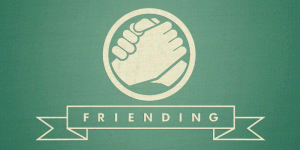
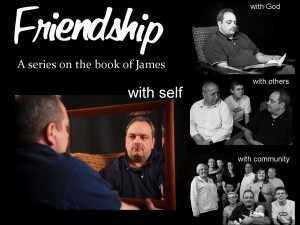







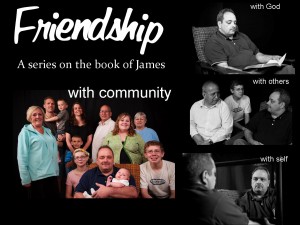
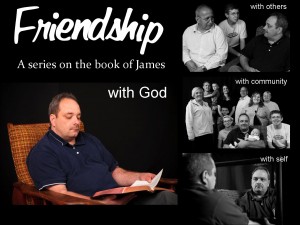

Recent Comments